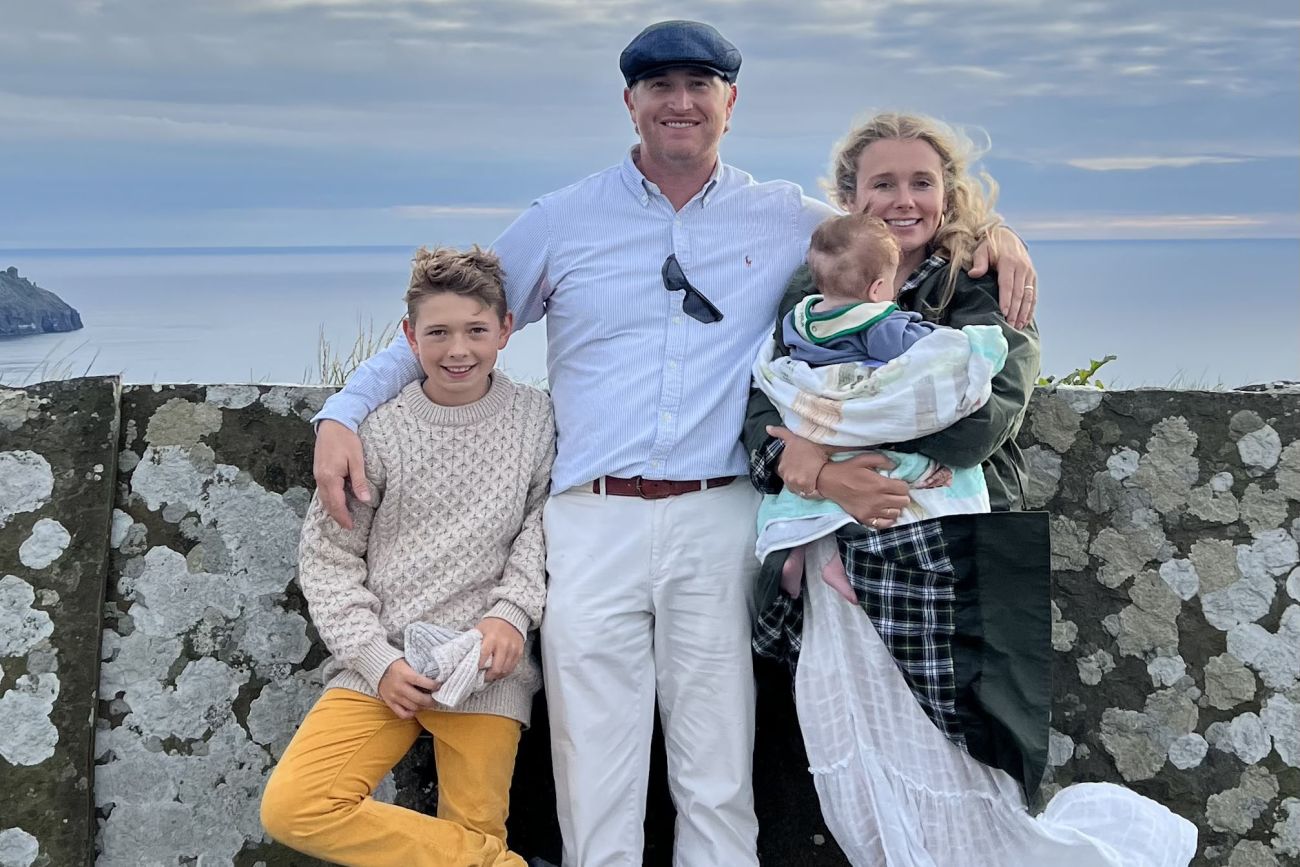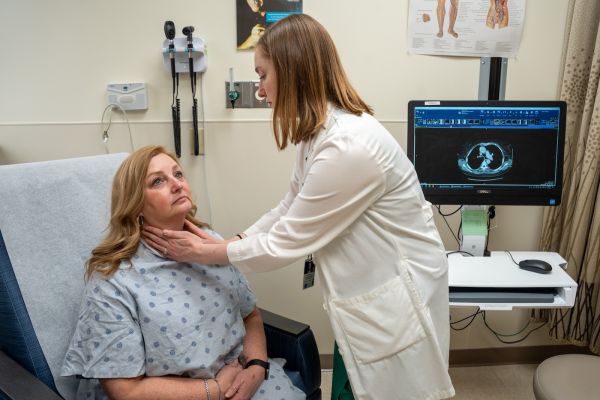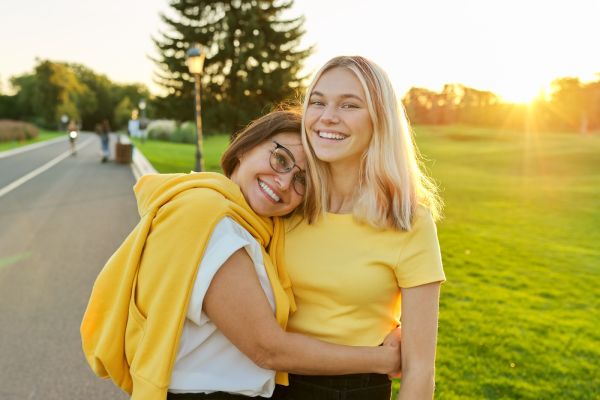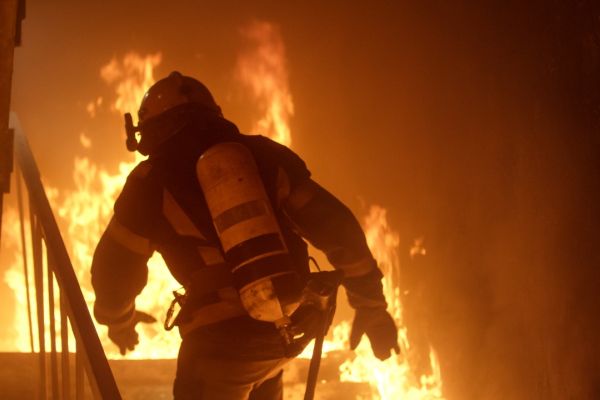Kenmore native Andrew Beale is a veteran firefighter — the captain of Engine 35 in Kaisertown with a University at Buffalo degree in communications — a husband and father of two sons. At 36, he is also a survivor of melanoma skin cancer.
When his wife noticed a mole that looked like a small bruise, she told him he should get it looked at. He made an appointment with a dermatologist, who told him not to be concerned, not to worry. “I told my wife, ‘Look, I got it checked. I think I’m good,’” he says. “Out of sight, out of mind, right?”
When he learned through his union about Roswell Park Comprehensive Cancer Center’s First Responders Cancer Screening Program, he decided to take advantage of it — partly, he says, in memory of fellow firefighters lost to cancer. “They were really good guys that everybody looked up to. And when they got cancer, it seemed like they were gone in the blink of an eye. In their memory, I’d hate to have a cancer screening that I skipped. It feels almost disrespectful. So, I made the appointment online. It was incredibly easy.”
At Roswell Park, the team examined the skin on Andrew’s whole body and when they saw the spot on his stomach, the nurse told him it would be best if they removed it. “They nipped it off, put a Band-Aid on it. Again, out of sight, out of mind, right? I never thought it was going to be cancer. I’d already had it checked. They said, ‘We’ll call you in a week after we biopsy it.’ I said ‘okay.’”
He was working at another firehouse, about to get on the treadmill, when Roswell Park called to say the biopsy had come back positive for melanoma, stage 1. “I said, ‘Oh, well, good. We nipped it off already, right?’ And she said, ‘It’s not that cut and dry. It’s possible it could have spread. It’s possible that it’s deeper than what we removed, so you need to come back in for a consult and we need to come up with a game plan.’”
When he came back, his care team explained what needed to be done. “They told me there was only an 18% chance the cancer had spread, and said they could roll the dice and just take the chunk out of my stomach, or they could double-check the lymph nodes and be sure. I thought, ‘I’m 36 years old. Let’s just check them now.’”
Why Roswell Park for Young Adult cancer?
Our Young Adult program offers nationally designated comprehensive cancer care, plus support and services specifically designed to help you and your family now — and for years to come..
They decided on surgery to completely remove the spot on his abdomen and a margin of tissue around it and then biopsy the lymph nodes under both arms to learn for sure whether or not it had spread. “After that meeting post diagnosis, I felt much better just because I had more information,” says Andrew, whose wife was eight months pregnant at the time. “The surgery was about two or three weeks after my original consult.”
He admits that recovery took some time, and waiting for the results of the biopsy, which took about 10 days, was hard. “I was still recovering when my son Beckett was born, but by that time Roswell Park had already called to let me know that the biopsy had come back negative. It did not spread to my lymph nodes. Dr. Joseph Skitzki, was great. He was confident that they got it all out of my abdomen, and there was no spread to my lymph nodes. He thought everything was looking really good going forward.”
Today, Andrew advises everyone — especially his fellow firefighters and other first responders who have a higher exposure to carcinogens — to get checked for skin cancer.
“Life changes when you have kids. Every day that you’re with them seems like the greatest day. I feel like if I were to lose out on any of those days, I would get cheated in life,” he says, adding that 10 years of going in and out of fires, putting on the gear, was at least a factor in his diagnosis.
“To check it early, stop it early, I couldn’t believe how that made me feel. With the fire department, we’re at a higher risk. It’s just an inherently dangerous job. Cancer’s always going to be a risk for us. But that doesn’t mean that everybody else on the street is at no risk.
“Take a day, go get a cancer screening. I’ve been preaching it ever since I had my scare. I’ve been telling all my friends and family, everyone, I know. My brothers went, my dad went, my best friends went, my wife went. Everybody went. It’s just such an easy thing. And you don’t want to get cheated out of those free days, man. You got to cash them all in.”
First Responders Screening Program
First responders face unique occupational health risks — take advantage of Roswell Park’s unmatched specialized expertise in cancer prevention and detection.
Editor’s Note: Cancer patient outcomes and experiences may vary, even for those with the same type of cancer. An individual patient’s story should not be used as a prediction of how another patient will respond to treatment. Roswell Park is transparent about the survival rates of our patients as compared to national standards, and provides this information, when available, within the cancer type sections of this website.



